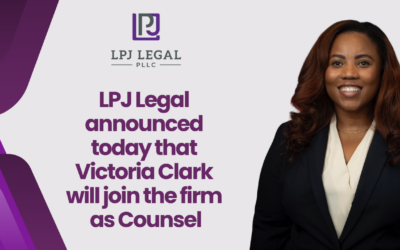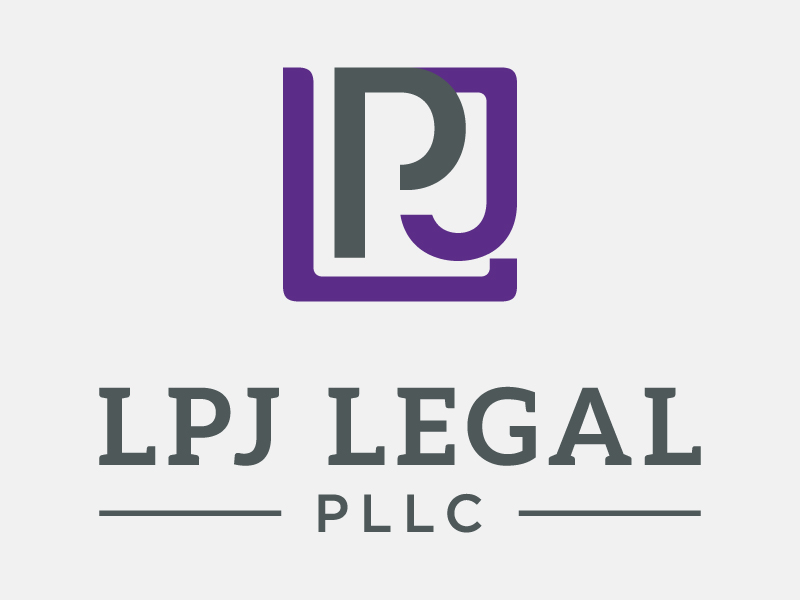In the fast-paced world of business, or when you’ve formed a strong relationship with a particular client, it can be tempting to seal a deal with a handshake and a verbal promise. But remember, business is business. While verbal agreements may seem convenient and reflect trust between parties, they come with significant risks that can jeopardize your business interests. At LPJ Legal, we’ve seen the consequences of poorly documented deals, and we’re here to help you understand why it’s crucial to put all of your agreements, big and small, in writing.
New to LPJ Legal? We’re a dedicated group of experienced and highly credible legal professionals, proudly representing clients both locally and internationally with domestic offices in D.C., Maryland, Virginia, and Georgia. At LPJ Legal, we believe that a law firm should be more than a legal resource; it should be a trusted partner. Our team is committed to safeguarding our clients’ businesses, properties, and futures, providing powerful legal insights to help ensure their success. To become a client, visit the LPJ Legal website, or call us directly at 202-643-6211.
Are Verbal Agreements Enforceable?
Verbal agreements are, in many cases, legally enforceable. In the United States, contracts do not necessarily need to be in writing to be valid. However, they must meet certain criteria, including:
- Offer and Acceptance: Both parties must agree to the terms of the agreement.
- Consideration: Something of value must be exchanged (e.g., goods, services, or money).
- Mutual Intent: Both parties must intend to create a binding agreement.
Despite their enforceability, verbal agreements are notoriously difficult to prove and enforce due to their lack of tangible evidence. This is particularly true in complex business transactions where terms and conditions are nuanced.
The Risks of Verbal Agreements
1. Ambiguity and Misunderstandings
- Without written documentation, the terms of a verbal agreement are open to interpretation. Parties may recall the agreement differently, leading to heated disputes. And without any documentation, these disputes can be difficult to resolve amicably.
2. Difficulty in Proving Terms
- If a dispute arises around a verbal agreement, you’ll need to rely on witnesses, emails, or other indirect evidence to support your claim. This can be time-consuming, expensive, and uncertain.
3. Statute of Frauds
- In legal situations, the Statute of Frauds requires certain contracts or promises to be in writing in order to be enforceable. This includes legal agreements involving real estate, contracts lasting more than one year, and transactions exceeding a certain monetary threshold (this threshold varies by jurisdiction).
- If your verbal agreement falls under the Statute of Frauds and isn’t in writing, the courts may refuse to enforce it.
4. Limited Recourse
- Limited recourse means that even if a verbal agreement is proven, courts might not fully enforce it if the terms are unclear, incomplete, or lack critical details. Even if you can prove the existence of a verbal agreement, the courts may be reluctant to enforce unclear or incomplete terms.
5. Loss of Negotiation Leverage
- It’s hard to negotiate a deal that was never written down. Written contracts provide clarity and accountability, which can protect you from renegotiation attempts or unfair demands after the deal is made.
Real-World Examples of Verbal Agreement Pitfalls
- Partnership Disputes: Two business partners verbally agree to split profits 50/50 but fail to document the terms. Later, one partner claims they deserve a larger share, and the other partner has no written proof to contest the claim.
- Payment Disagreements: A contractor verbally agrees to complete a project for $10,000 but is later told the agreed amount was $8,000. Without a written agreement, proving the original terms becomes a challenge.
- Delivery and Timing Issues: A supplier verbally promises to deliver goods within a specific timeframe, but that delivery is delayed. Without written terms specifying deadlines and penalties for delays, the buyer has little recourse to claim damages.
Protect Yourself with Written Contracts Protect Yourself with Written Contracts
1. Always Get It in Writing
Even a simple written agreement can provide clarity and protection. Include key terms like scope, payment, deadlines, and responsibilities.
2. Use the Legal Professionals at LPJ Legal
A well-drafted contract tailored to your specific needs is worth the investment. At LPJ Legal, we can help ensure that your agreement is comprehensive and legally enforceable. We highly recommend using our services, or another Law Firm’s, to draft agreements. Learn more about our business services here.
3. Maintain a Paper Trail
If you must rely on verbal agreements temporarily, follow up with written confirmations via email or text to document the terms discussed.
4. Understand Applicable Laws
The enforceability of verbal agreements varies by state and the nature of the transaction. Thankfully, you can rely on the attorneys at LPJ Legal to help you navigate these nuances.
Conclusion
While verbal agreements may feel convenient in the moment, their hidden risks can lead to costly disputes and strained business relationships. At LPJ Legal, we specialize in helping businesses protect their interests with clear, enforceable contracts. Don’t leave your deals to chance—contact LPJ Legal today to ensure that your agreements are solid and secure.



